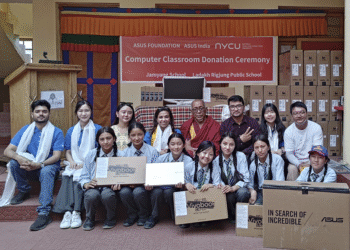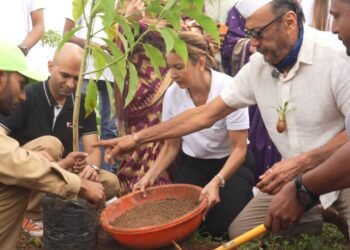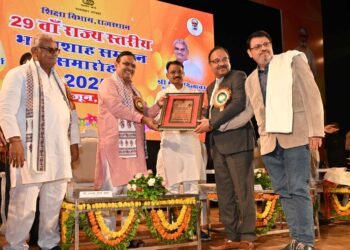By Rusen Kumar
NEW DELHI (India CSR): During the financial year 2020-21, Sajjan Jindal-led JSW Steel has spent an amount of Rs. 200.34 crores towards Corporate Social Responsibility (CSR) expenditure. In the last four financial years, the Company has consistently increased its share of CSR expenditure. This year the company fully spent CSR amount on social work.
The CSR spending increased every year from Rs. 53 crores in FY 2017-18 to Rs. 176.73 crores in FY 2020-21.
JSW, India’s leading and one of the world’s most efficient integrated steelmakers, has been working for the education, health & nutrition, sanitation and well-being of marginalised sections of society and has spent Rs. 13,20,991 in the Ranchi district of Jharkhand. The company spent Rs. 0.06 crores on Impact Assessment.
There was no amount unspent for the year ended 31 March 2022. In respect of the unspent amount of Rs. 86 crores for FY 2021, the Company has spent an amount of Rs. 73 crores in the current financial year.
“The Company has incurred an amount of Rs. 200 crores (31 March 2021 Rs. 165 crores) towards Corporate Social Responsibility (CSR) as per Section 135 of the Companies Act, 2013 and is included in other expenses.”, the company annual report said.
The average net profit of the company as per section 135(5) was Rs. 9,970.50 crores. Two percent of the average net profit of the company as per section 135(5) was Rs.199.41 crores
Total CSR obligation for the financial year was calculated at Rs.199.41 crores.
Also Read: JSW Steel spends Rs. 311 Cr on CSR – Corporate Social Responsibility in the last 4 years
In line with the Group’s philosophy of ‘Better Everyday’, JSW Steel has strived to deliver on its responsibilities towards its communities, people and society at large.
The Company carries out its social and out-of-fence environmental initiatives through JSW Foundation.
The aim is to drive meaningful and sustainable change among communities (Direct Influence Zones & Indirect Influence Zones) across eight cause areas.
JSW Foundation’s interventions are oriented toward achieving better outcomes in the local context by adopting the SAMMS approach- Strategic, Aligned, Multistakeholder, Measurable, and Sustainable. The interventions aim to leverage the long-standing trust and engagement with the communities to enable a self-sustaining ecosystem of well-being.
The interventions range from strengthening educational institutions to the provisioning of secondary & tertiary healthcare and strengthening the public health system, helping communities to access basic sanitation & promoting hygiene, contributing towards the water and environment conservation, facilitating women-centric livelihoods and promoting an agribusiness approach.
To identify the vulnerable and marginalised stakeholders within the identified focus areas, several methodologies are adopted such as desk research for situational analysis, participatory rural appraisal, community need assessment and focus group discussion with the stakeholders.
These methods help in prioritising the community-level interventions.
It implements a range of programmes that enables improved quality of life for people impacted by its operations. Over the years, JSW Steel’s continuous efforts have resulted in better education, better health, better employment, better infrastructure and better sanitation for the local communities.
Overall, the Company has aligned its CSR programmes to the critical areas of health and nutrition, education and learning, agri- initiatives, livelihood, sanitation, water conservation and augmentation, biodiversity promotion, skill enhancement, and art, culture and sports.
Also Read: JSW Steel spends Rs 63 cr on CSR in FY19
Details of beneficiaries of CSR Projects for the year 2021-22:
SL No. – CSR Project and No. of persons benefited from CSR Projects
1 Health & Nutrition: Focusing on mother & child health and well-being of the community – 3,03,256
2 Education and Learning: Improving standards & quality of delivery of education – 1,02,420
3 Agri-initiatives: Aiming for sustainable prosperity of farming communities – 10,500
4 Livelihood: Empowering women, fueling growth – 25,640
5 Waste Management – 1,14,944
6 Water conservation and augmentation: Conserving for a better tomorrow – 55,175
7 Margdarshak: Facilitating Social Entitlements – 1,78,944




















